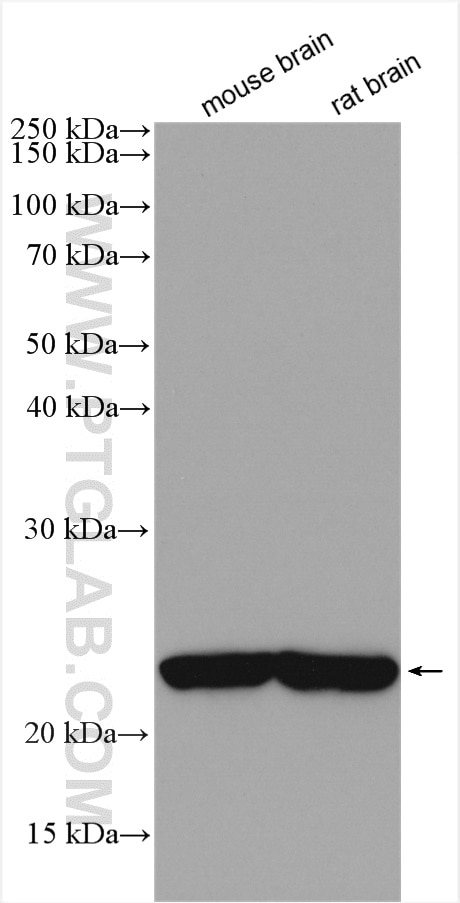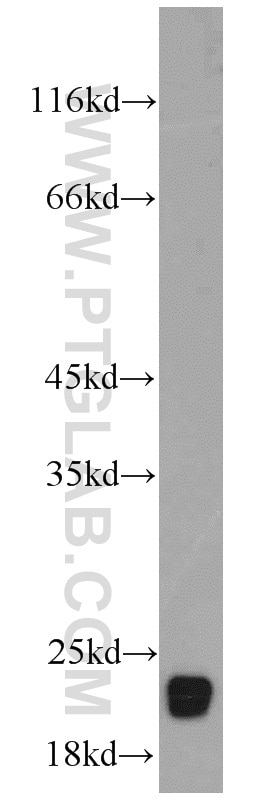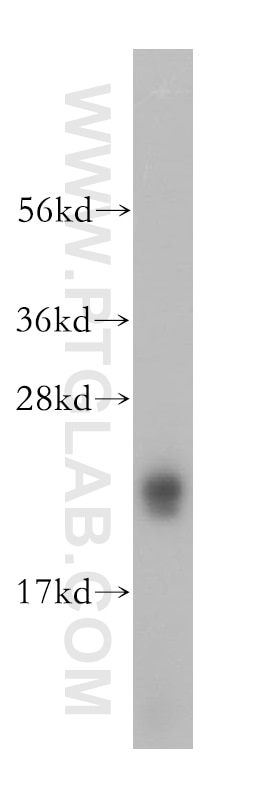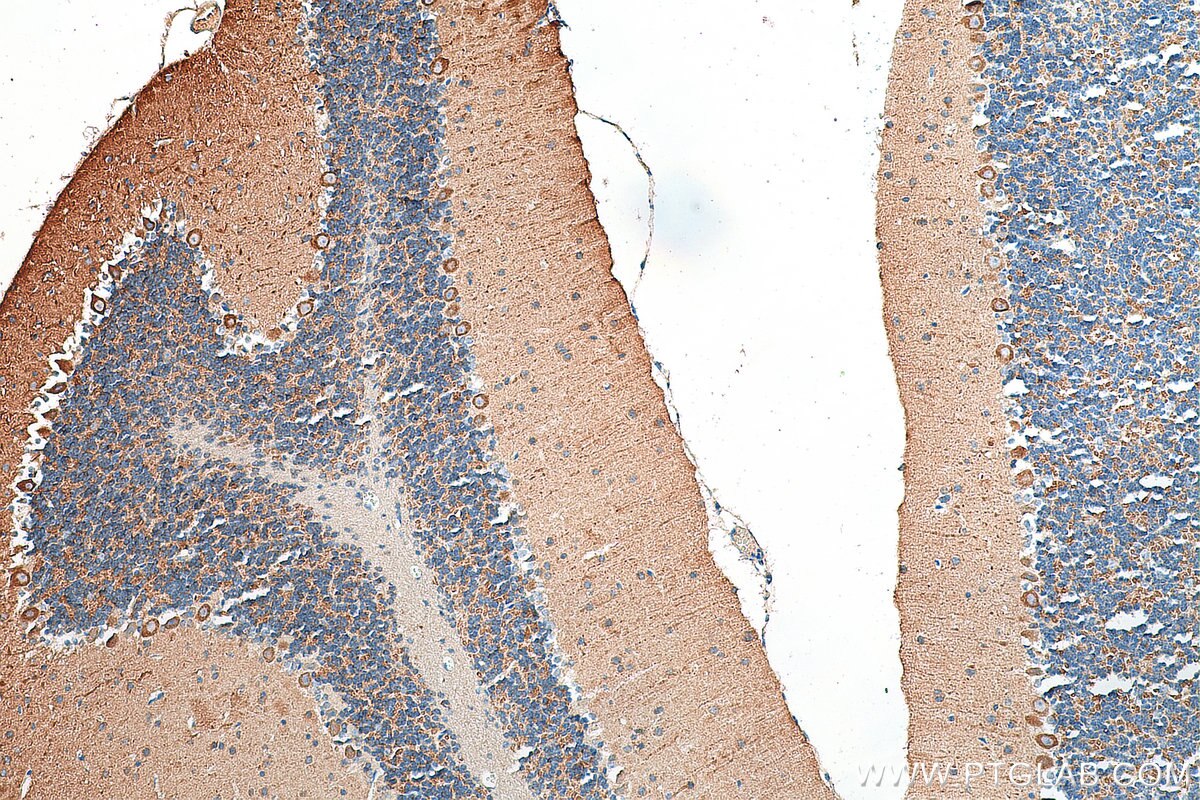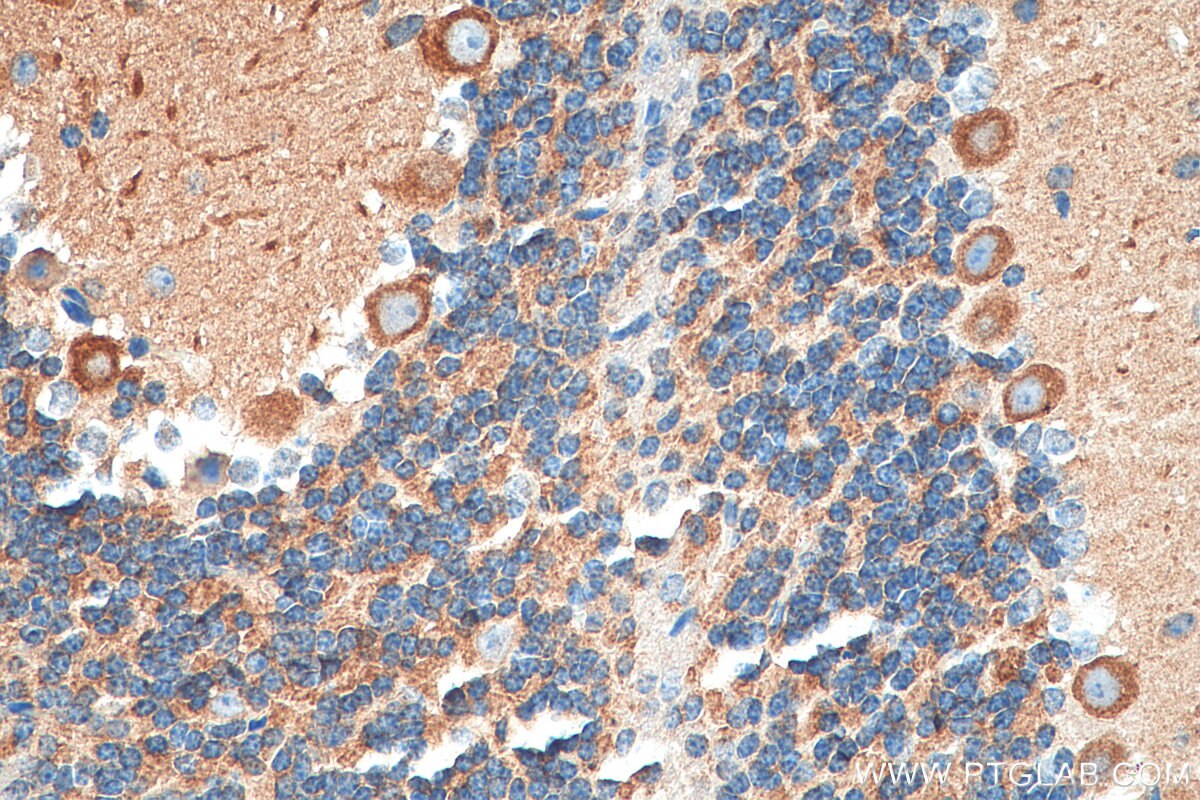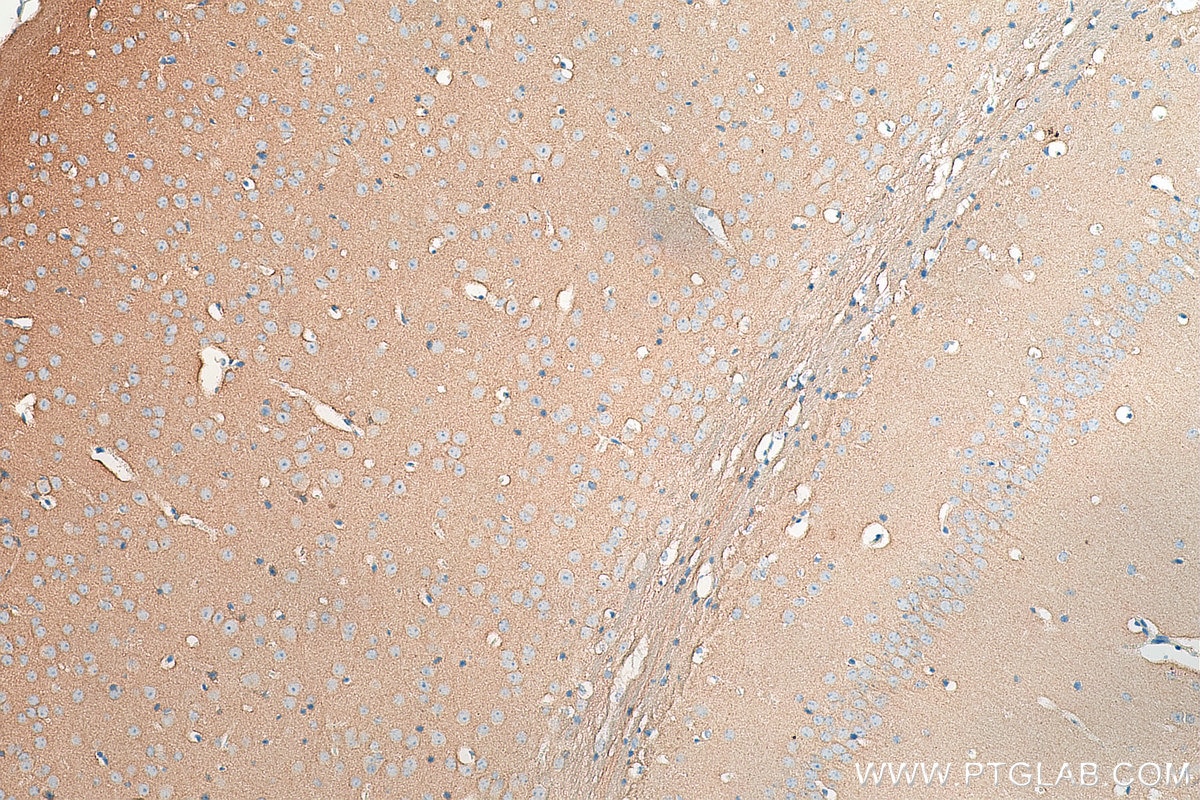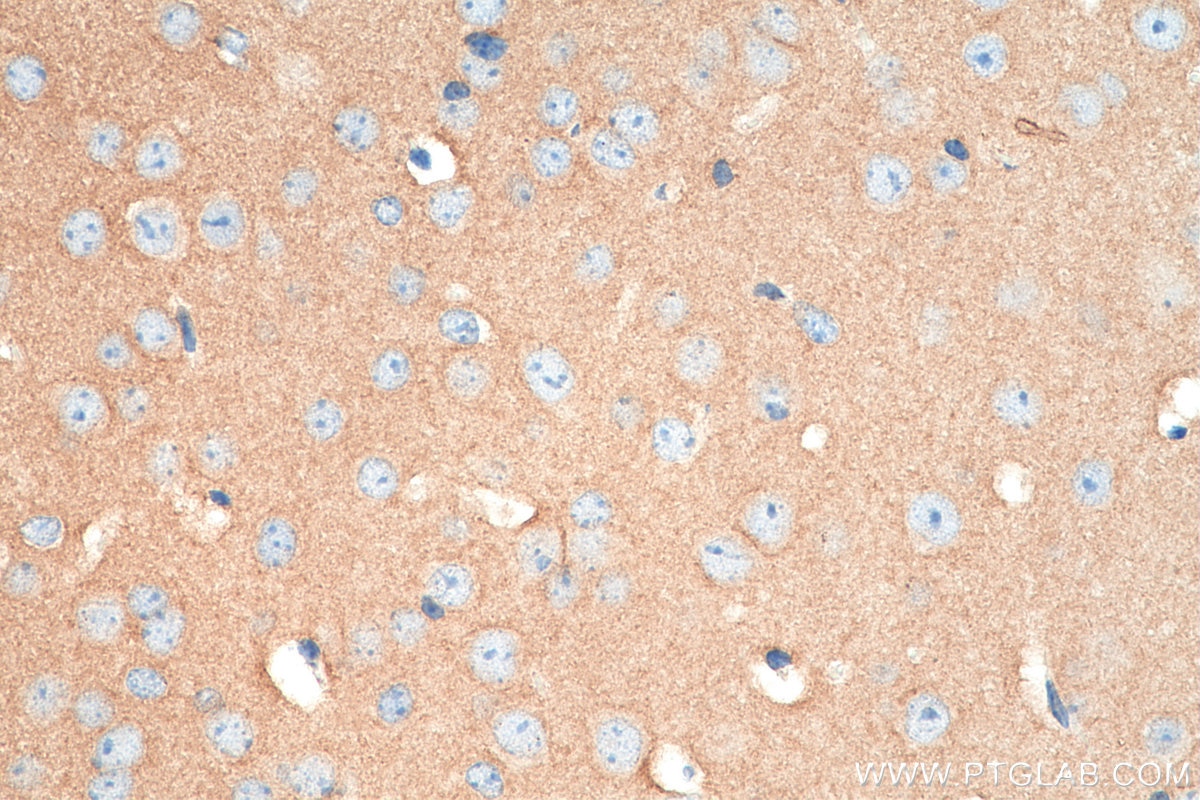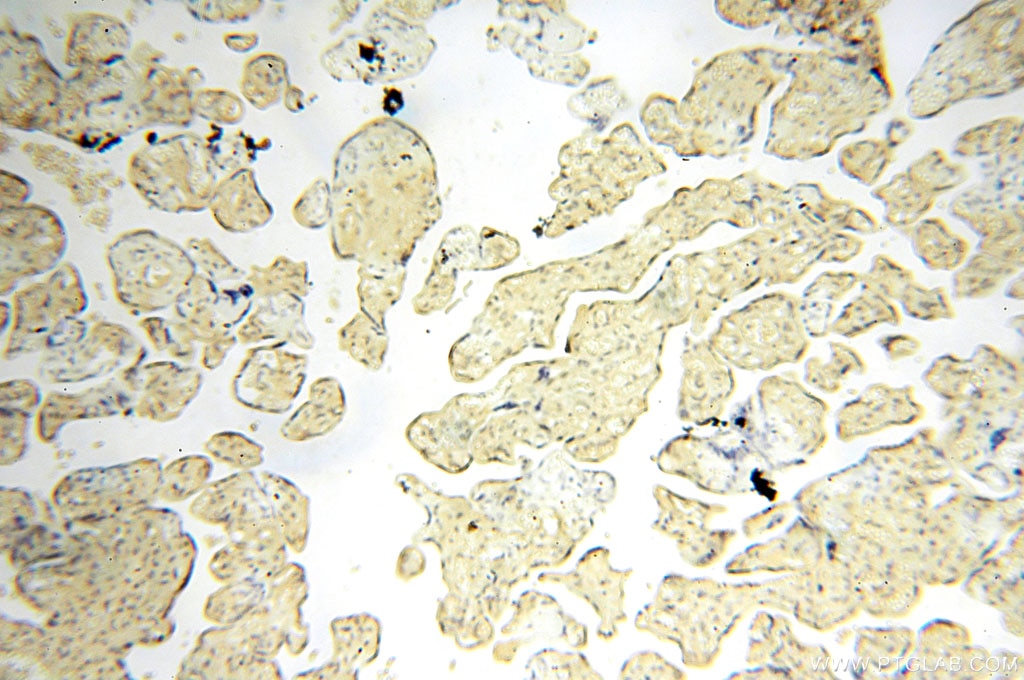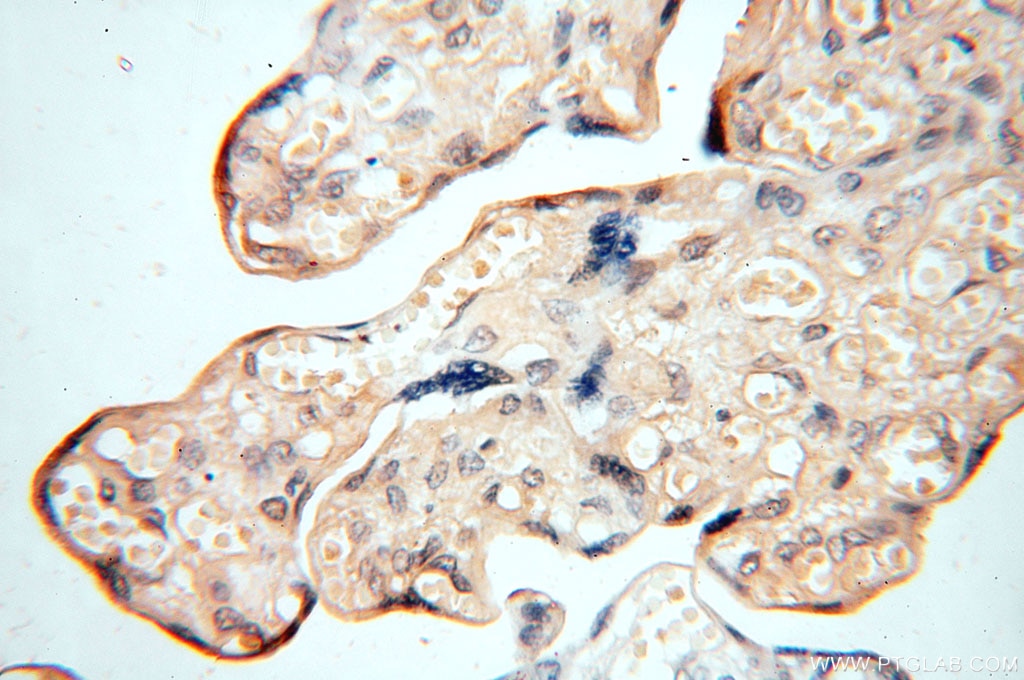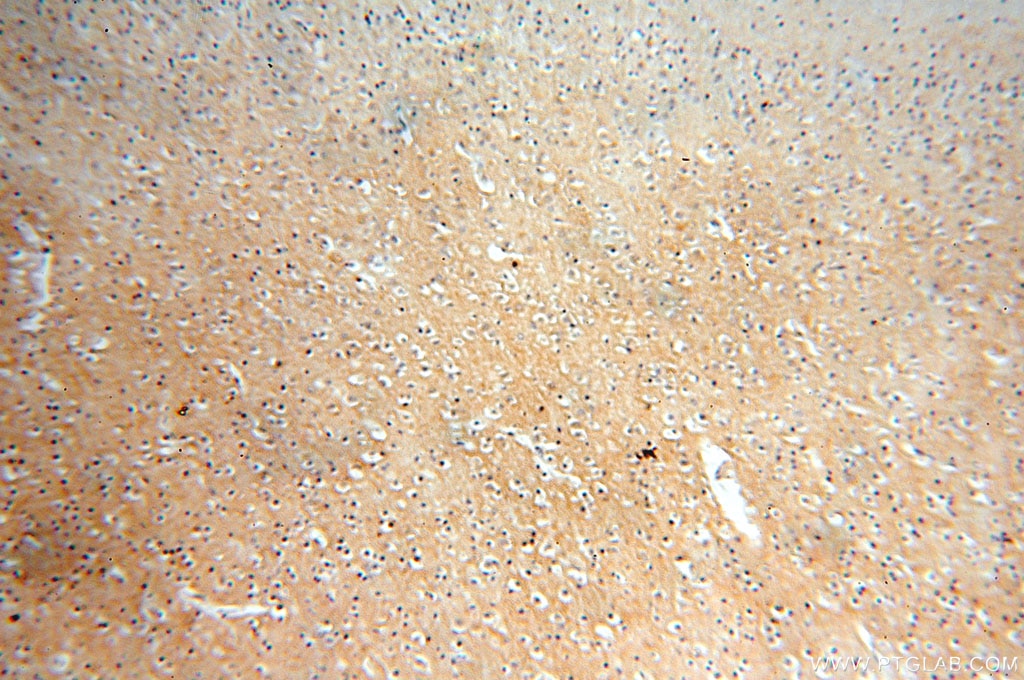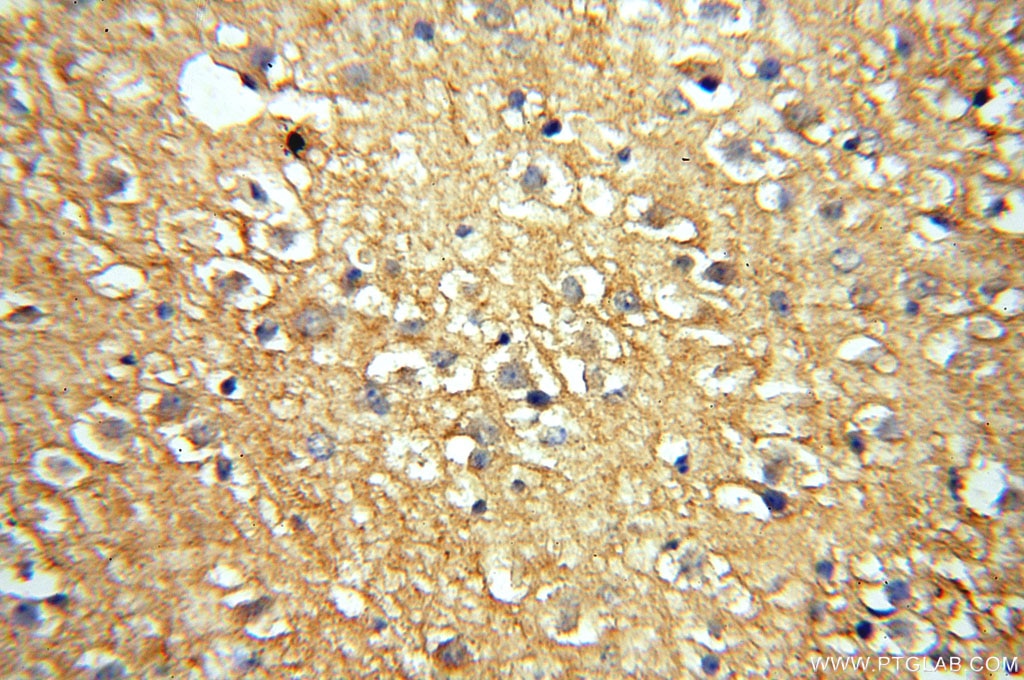Tested Applications
| Positive WB detected in | mouse brain tissue, human brain tissue, rat brain tissue |
| Positive IHC detected in | mouse cerebellum tissue, human brain tissue, human placenta tissue, mouse brain tissue Note: suggested antigen retrieval with TE buffer pH 9.0; (*) Alternatively, antigen retrieval may be performed with citrate buffer pH 6.0 |
Recommended dilution
| Application | Dilution |
|---|---|
| Western Blot (WB) | WB : 1:500-1:4000 |
| Immunohistochemistry (IHC) | IHC : 1:50-1:500 |
| It is recommended that this reagent should be titrated in each testing system to obtain optimal results. | |
| Sample-dependent, Check data in validation data gallery. | |
Published Applications
| KD/KO | See 2 publications below |
| WB | See 6 publications below |
| IF | See 1 publications below |
Product Information
15048-1-AP targets RTN1 (Isoform RTN1-C) in WB, IF, IHC, ELISA applications and shows reactivity with human, mouse, rat samples.
| Tested Reactivity | human, mouse, rat |
| Cited Reactivity | human, mouse, rat |
| Host / Isotype | Rabbit / IgG |
| Class | Polyclonal |
| Type | Antibody |
| Immunogen |
CatNo: Ag7031 Product name: Recombinant human RTN1 protein Source: e coli.-derived, PGEX-4T Tag: GST Domain: 1-208 aa of BC000314 Sequence: MQATADSTKMDCVWSNWKSQAIDLLYWRDIKQTGIVFGSFLLLLFSLTQFSVVSVVAYLALAALSATISFRIYKSVLQAVQKTDEGHPFKAYLELEITLSQEQIQKYTDCLQFYVNSTLKELRRLFLVQDLVDSLKFAVLMWLLTYVGALFNGLTLLLMAVVSMFTLPVVYVKHQAQIDQYLGLVRTHINAVVAKIQAKIPGAKRHAE Predict reactive species |
| Full Name | reticulon 1 |
| Calculated Molecular Weight | 84 kDa, 39 kDa, 24 kDa |
| Observed Molecular Weight | 23 kDa |
| GenBank Accession Number | BC000314 |
| Gene Symbol | RTN1-C |
| Gene ID (NCBI) | 6252 |
| RRID | AB_2185981 |
| Conjugate | Unconjugated |
| Form | Liquid |
| Purification Method | Antigen affinity purification |
| UNIPROT ID | Q16799 |
| Storage Buffer | PBS with 0.02% sodium azide and 50% glycerol, pH 7.3. |
| Storage Conditions | Store at -20°C. Stable for one year after shipment. Aliquoting is unnecessary for -20oC storage. 20ul sizes contain 0.1% BSA. |
Background Information
Reticulon (RTN) proteins are a group of membrane-bound proteins that largely reside in endoplasmic reticulum (ER) (PMID: 18177508). Reticulon proteins share a common sequence feature, the reticulon homology domain (RHD). They are involved in shaping the tubular endoplasmic reticulum network, membrane trafficking, inhibition of axonal growth, and apoptosis (PMID: 24218324). Four mammalian reticulons (RTN1-4) exist. Human RTN1 (also known as NSP) gene is expressed predominantly in neuroendocrine tissues, and produces three isoforms termed RTN1-A (NSP-A), RTN1-B (NSP-B), and RTN1-C (NSP-C). This antibody is raised against the full-length protein of human RTN1-C.
Protocols
| Product Specific Protocols | |
|---|---|
| IHC protocol for RTN1 (Isoform RTN1-C) antibody 15048-1-AP | Download protocol |
| WB protocol for RTN1 (Isoform RTN1-C) antibody 15048-1-AP | Download protocol |
| Standard Protocols | |
|---|---|
| Click here to view our Standard Protocols |
Publications
| Species | Application | Title |
|---|---|---|
Cell Death Dis RTN1-C mediates cerebral ischemia/reperfusion injury via ER stress and mitochondria-associated apoptosis pathways.
| ||
Hum Mol Genet Transverse endoplasmic reticulum expansion in hereditary spastic paraplegia corticospinal axons. | ||
Acta Biochim Biophys Sin (Shanghai) RTN1-C mediates cerebral ischemia/reperfusion injury via modulating autophagy.
| ||
NPJ Parkinsons Dis Deficiency of Perry syndrome-associated p150Glued in midbrain dopaminergic neurons leads to progressive neurodegeneration and endoplasmic reticulum abnormalities | ||
Brain Res Bull RTN1-C is involved in high glucose-aggravated neuronal cell subjected to oxygen-glucose deprivation and reoxygenation injury via endoplasmic reticulum stress. |

